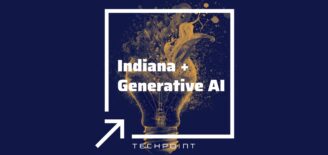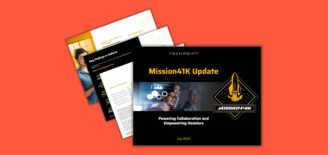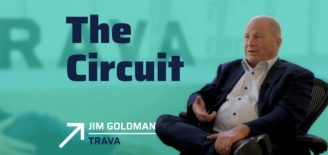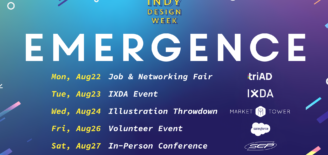4 Myths About the Future of AI
What is the future of AI in marketing? In January, IU, Pattern89 and High Alpha hosted an artificial intelligence summit with world-leading AI experts, researchers and senior enterprise marketers to learn about and collaborate on the future of AI in academia and marketing.
The event featured IU vice presidents and professors as keynote speakers addressing the state of AI and ethics, as well as a panel discussion of AI applications. Throughout the day, attendees were challenged to rethink what they thought they knew about AI, while discussing what the future of AI actually has in store.
In a world where AI often gets a bad rap, let’s separate science fact from science fiction.
MYTH #1: It is too difficult to get started with AI.
The same can be said for any new technology. Humans originally thought the printing press or the computer would be too difficult, too. While AI as a whole may be intimidating, the technology itself will be revolutionary for your business. Today, 37% of organizations use technology that features AI. This shows an increase of over 270% in the last four years. Getting started is the only path forward.
Those who wait for a step-by-step guide or best practices list will fall behind in the fast-moving artificial intelligence world. Only once you begin the process of implementing AI in your marketing repertoire, will the opportunities and successes arise. AI is more than just a flashy new technology – infusing it into a marketing strategy or into overall business operations can have a profound impact. Starting your AI pilot project today, not tomorrow, will make it easier to set your powerful marketing campaigns into motion.
MYTH #2: AI is too confusing for our marketing strategy.
It’s time we demystify the buzzword. First, marketers need to understand what AI is and what AI isn’t, in order to eliminate any initial confusion. AI is data science; AI isn’t creative and free-willed like humans.
After all, the average person is already utilizing AI in their life, whether they know it or not. Look at how Siri, Alexa and Google implement the technology seamlessly, so much so that while 77% of consumers use an AI platform daily, only 33% are actually aware they’re using it. Vice President for Research at IU Fred Cate commented during his presentation: “People don’t like knowing they’re using AI. One of the great keys to AI is hiding the fact that you’re using it.”
With all the dystopian films and books out there, AI can seem daunting and confusing. Once you learn the basics, AI will fit naturally within your campaigns and strategies. You don’t have to go all in right away. Start small by adding a website chatbot or an AI-driven personalized social media ad. By guiding marketers and giving them the tools, tips and tricks to navigate this technology, we can make AI that much more approachable – and that much smarter with new data and new uses.
MYTH #3: We don’t need that much data.
In reality, the more data the better. In order to accurately draw meaningful conclusions and provide successful strategies, marketers need a lot of data, which only AI can analyze. Having a vast dataset at your fingertips helps marketers accurately predict what will drive the biggest results and boost ROI.
Humans can’t analyze the billions of data points available to us every minute, but AI can, and it’ll discover what creative trends and strategic approaches will resonate best with your audiences. People will still be in charge of their branding and creative, but AI will provide strategic insights to make the most of both.
When marketers find the right partners with a wealth of relevant data, the impact AI will have on creative thinking will be tremendous. AI delivers a better consumer experience by providing the data you need to update your marketing strategies. For marketers, businesspeople and consumers alike, the technology only adds to the power of what humans can do.
MYTH #4: AI will take our jobs.
Job panic caused by technological advancements is a narrative throughout history. It’s important to remember that every machine, even AI, has its limits. What happens when artificial intelligence doesn’t have the answers? Even the best 404 error pages can’t make up for poor customer experience when the technology blocks next action in a critical situation.
Only humans have the innate ability to be creative. Our machines can optimize, calculate and analyze as much as possible, but creativity remains in the hands of humans. Beauty is in the eye of the beholder, but it needs to serve the algorithm that dictates digital marketing success. With AI in tow, marketers can have both – and revel in the fact that their creative minds are incapable of being replaced.
Like with any new technology, hesitation is inevitable. When implementing AI into your organization, learn the facts to make smarter marketing decisions that will ultimately lead to your future success.
Don’t believe the myths. Believe in AI.
About the Author
R. J. Talyor is founder and CEO of Pattern89, an artificial intelligence-based software company that optimizes paid social media advertising campaigns. Previously, R.J. was the driver behind ExactTarget’s mobile strategy, including the launch of SMS marketing in 2002 and spearheading mobile marketing during the launch of the iPhone. His leadership was also instrumental when Salesforce acquired ExactTarget for $2.5 billion in 2013, where he became the vice president of mobile products. LinkedIn. Twitter.






































